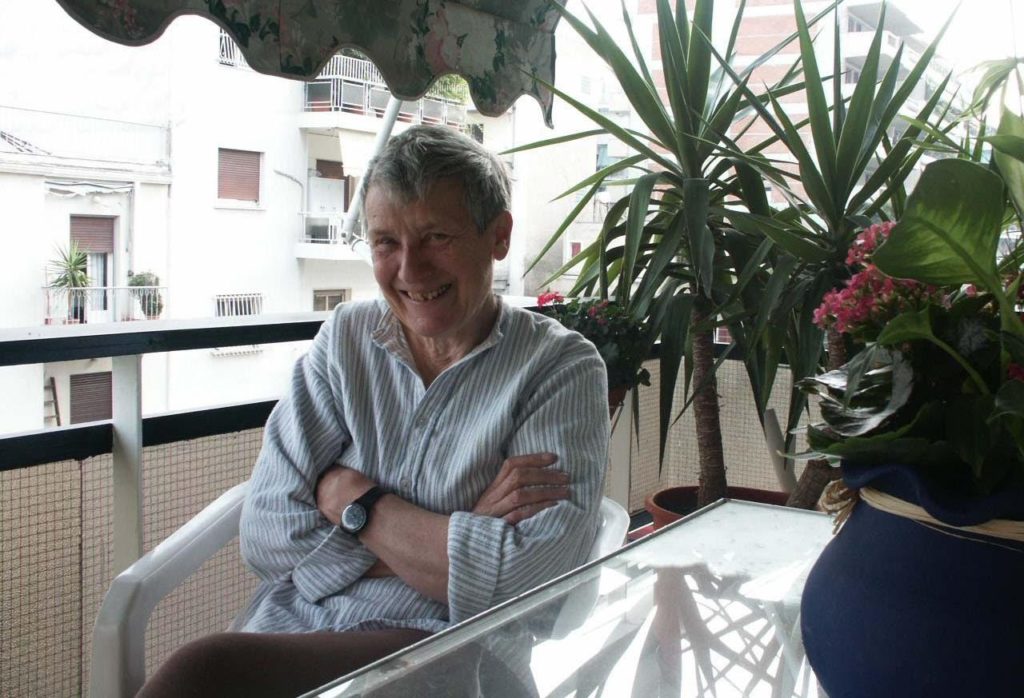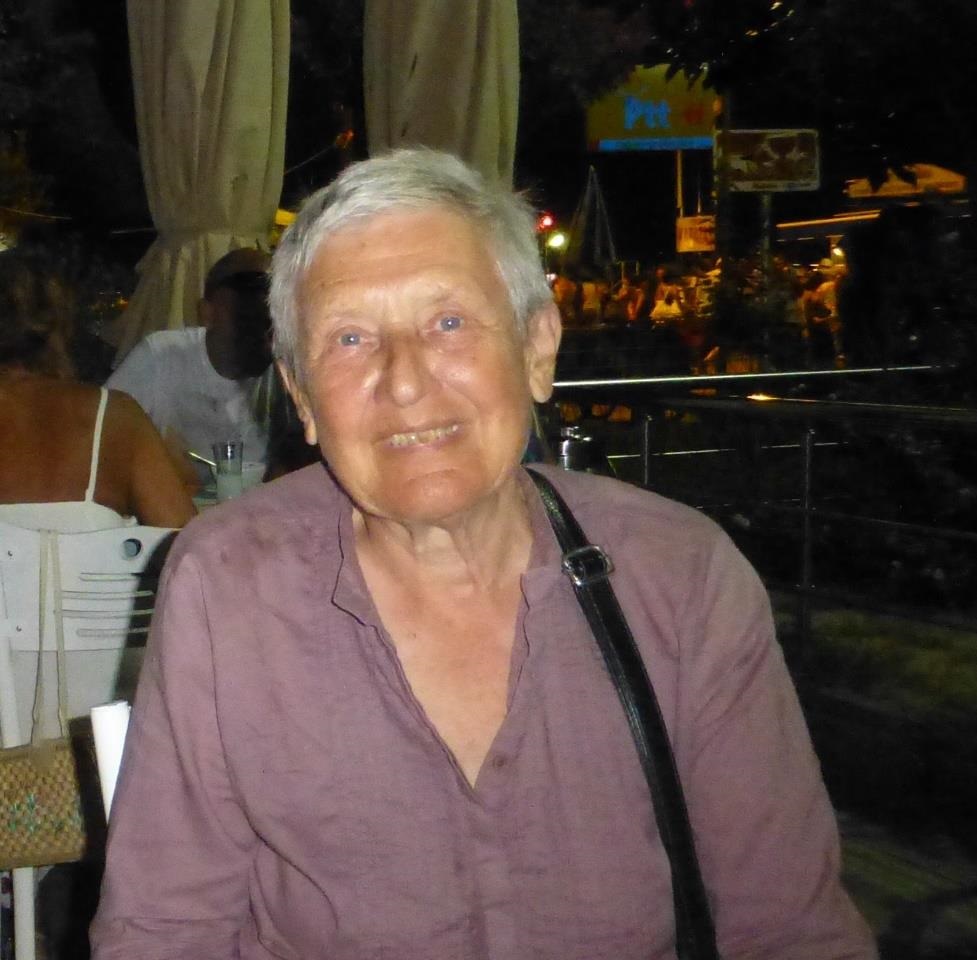Sally (S. C.) Humphreys (1934–2024)
Perhaps the most remarkable achievements of Sally Humphreys’ extraordinary career came at the beginning and the end. In 1955, at 20 years old, she and a friend bought a second-hand lifeboat, converted it, and with minimal funds and resources spent four summers sailing 1,500 miles across the Mediterranean. The published account of their voyages speaks of them as ‘two ordinary second-year students’, which, it has been noted, ‘sets the bar for the rest of us rather high’.

Photo courtesy of Michael Fotiadis.
In 2018, Sally raised the bar still further with her final book, Kinship in Ancient Athens: an anthropological analysis (OUP), two volumes and nearly 1,500 pages of original, vivid and deeply scholarly discussion, reconstructing Athenian society in unparallelled detail and depth. The acuity, sensitivity and sheer intellectual discipline required to produce this study would
have been astounding at any time of life, let alone at the age of 84. The two achievements were not unconnected: more than once in her work, Sally cited her experience of sailing in the Mediterranean as the inspiration for the questions she asked about the fundamental economic, political and cultural structures of Ancient Greece.
A survey of Sally’s career between those two moments may be found on Wikipedia https://en.wikipedia.org/wiki/Sally_Humphreys), and this short obituary covers only a few aspects of her life that stood out for me and for others. Her pioneering book Anthropology and the Greeks (1978) appeared when I was a student in Amsterdam and instantly became required reading for any self-respecting undergraduate in Ancient History there, as well as of course for the professional Ancient Historians and not a few Anthropologists. Given the chance to spend some time at a British university, I wanted to study under Sally and therefore picked UCL – to the surprise of the funding body, which inquired whether I was sure about going to London rather than Oxbridge.
Sally had established BA and MA joint degrees in Ancient History and Anthropology on her appointment at UCL in 1972, and I had the formative experience of ‘auditing’ the MA core seminar in the last iteration she taught herself before moving to Ann Arbor in 1985. The joint degrees that she had created ran successfully for nearly 40 years until the inevitable institutional squeeze on smaller programmes – regardless of their uniqueness and academic value – took its toll. But Sally’s legacy lives on in the outstanding alumni of these degrees, several of whom hold permanent academic positions in the UK and abroad, some in Ancient History and some in Anthropology.
Before taking up her post at UCL, Sally had been an academic librarian at the Warburg Institute in London, and here in collaboration with Arnaldo Momigliano she convened the influential and widely attended Ancient History Seminar. This was just one of the ways in which she made it her mission to encourage intellectual exchange: as Helen King noted in her eulogy at Sally’s funeral, forging connections ‘was something she was very good at doing, whether the bringing together happened in an academic meeting or around a dinner table at her Oxford house, Rhamnous, where she was always introducing people to those they would find interesting, often across the generations’. Over the years, Sally also brought many people together by inviting them to join her as crew on her sailing trips in the Mediterranean, which certainly did not end with her youthful adventures in a lifeboat. I also recall being among students and colleagues whom she roped into going carolling to raise money for the charity then known as Help the Aged. Terrible singing by most of us, but great fun.
Sally’s exacting academic standards were legendary. Helen’s eulogy evoked ‘her characteristic raised eyebrow’ that spoke critical volumes; she also told of Sally’s initial disbelief at being told, once, of an editing error she had made in her own contribution to their co-edited volume Mortality and Immortality: The Anthropology and Archaeology of Death (1981). Forced to concede a rare slip-up, Sally christened Helen ‘Nemesis’ in recognition of her own ‘hybris’ in assuming that she was above such mistakes. To get a sense of her intellectual rigour in performance, as it were, it is well worth watching a grainy black-and-white recording of a mid-1970s seminar posted online, where Sally, the only woman in a stellar line-up of scholars, spoke lucidly and trenchantly on ‘Models of Change in History and Anthropology’.
The core of Sally’s intellectual enterprise across the decades and her numerous publications is well, if modestly, expressed in the closing words of the introduction to her great work on Kinship. ‘I hope at least’, she wrote, ‘that some readers will feel that their unexamined assumptions have run into fresh breezes and rough water’. While the nautical metaphor captures her passion for sailing and swimming (‘Even travelling along the Nile, she preferred swimming to visiting archaeological sites’, Helen reports), it was the challenging of assumptions, especially with the aid of anthropological approaches, that Sally did best in all her research and teaching.

Photo courtesy of Angelos Chaniotis.
